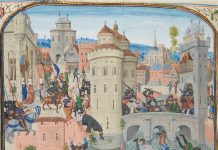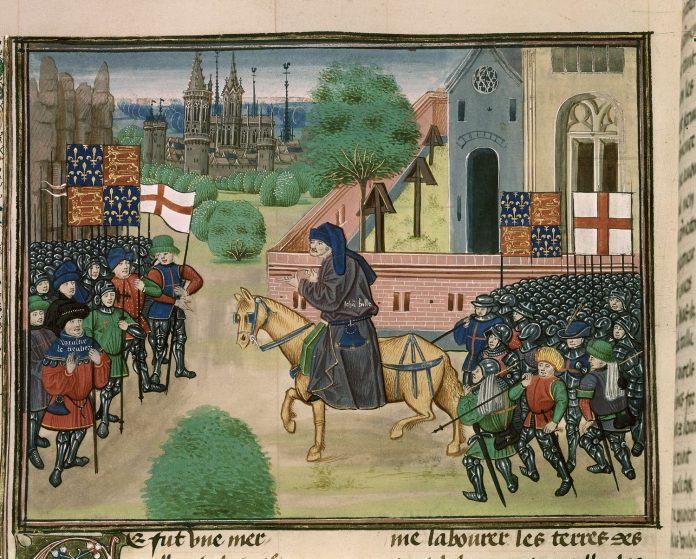
Socialistisk Biblioteks Tidslinje med links til begivenheder og personer i 1381.
Se også Index over personer, organisationer/partier og værker (som bøger, malerier, mm.), steder, begivenheder, mv., der er omtalt på hele Tidslinjen, titler og indhold på emnelisterne osv.
12. juni 1381
Engelsk bondeopstand mod skattesystemet under ledelse af Wat Tyler, Jack Straw og præsten John Ball går mod London, angriber borgen Tower, men blir slået ned af kongemagt og adel den 15. juni.
Links:
- Peasants’ Revolt (Denstoredanske.dk)
- Peasants’ Revolt (Wikipedia.dk)
- Bondeopprøret i England (Wikipedia.no)
12. juni 1381 – Bondeoprør i England – mødet ved Blackheath (Arbejderen.dk, 12. juni 2008). “Der hersker en stor disciplin blandt oprørerne. Da de trænger ind i London, går de kun efter de paladser, der huser de mest forhadte adelsmænd.”
Den engelske opstand 1381: fortolkning og dokumentation. Af Knud J. V. Jespersen (Historisk Tidsskrift, bind 84, hæfte 2, 1984, s.177-97). “… nogle hovedtendenser i udforskningen af den store engelske opstand, samt at knytte nogle kommentarer til det berettende kildemateriale …”
In English:
- Peasants’ Revolt (Wikipedia.org).
- The Peasants Revolt 1381 (Marxists Internet Archive). Incl. Chronicle of the Revolt, 1381 + Summary of the Revolt, its causes and significance.
The English Peasants’ Revolt gave birth to a revolutionary tradition. By Dominic Alexander (Jacobin, April 20, 2023). “In 1381, English peasants and the urban poor rose up against feudal domination and briefly took control of London. Their revolt against the established order was crushed by brutal force, but it left behind the idea of a world without masters.”
The English Peasants’ Revolt of 1381. By Kim Milone (The Loyola University Student Historical Journal, 1986-1987). “The Revolt may have failed in its immediate goals, but it served as a link in the quest of the poor for emancipation from servitude, controlled wages, and unfair taxes.”
“This bright day of Summer”: The Peasants’ Revolt of 1381. By Paul Foot (Socialist Workers Party, June 1981, 20 p.; online at Marxists Internet Archive). “First given as a talk in celebration of the 600th Anniversary of the Peasants’ Revolt at the Socialist Workers Party Rally in Skegness, Easter 1981.”
The Peasant’s Revolt (The Labour Monthly, Vol.20, No.12, December 1938; online at Marxists Internet Archive). Review of H. Fagan, Nine Days that Shook England (Gollancz, 1938; online at Marxists Internet Archive).
Litteratur:
William Morris: A Dream of John Ball (1888) (Marxists Internet Archive). Dansk udgave: Drømmen om John Ball (Sirius, 1962, 109 sider)
Illustration fra bogen:
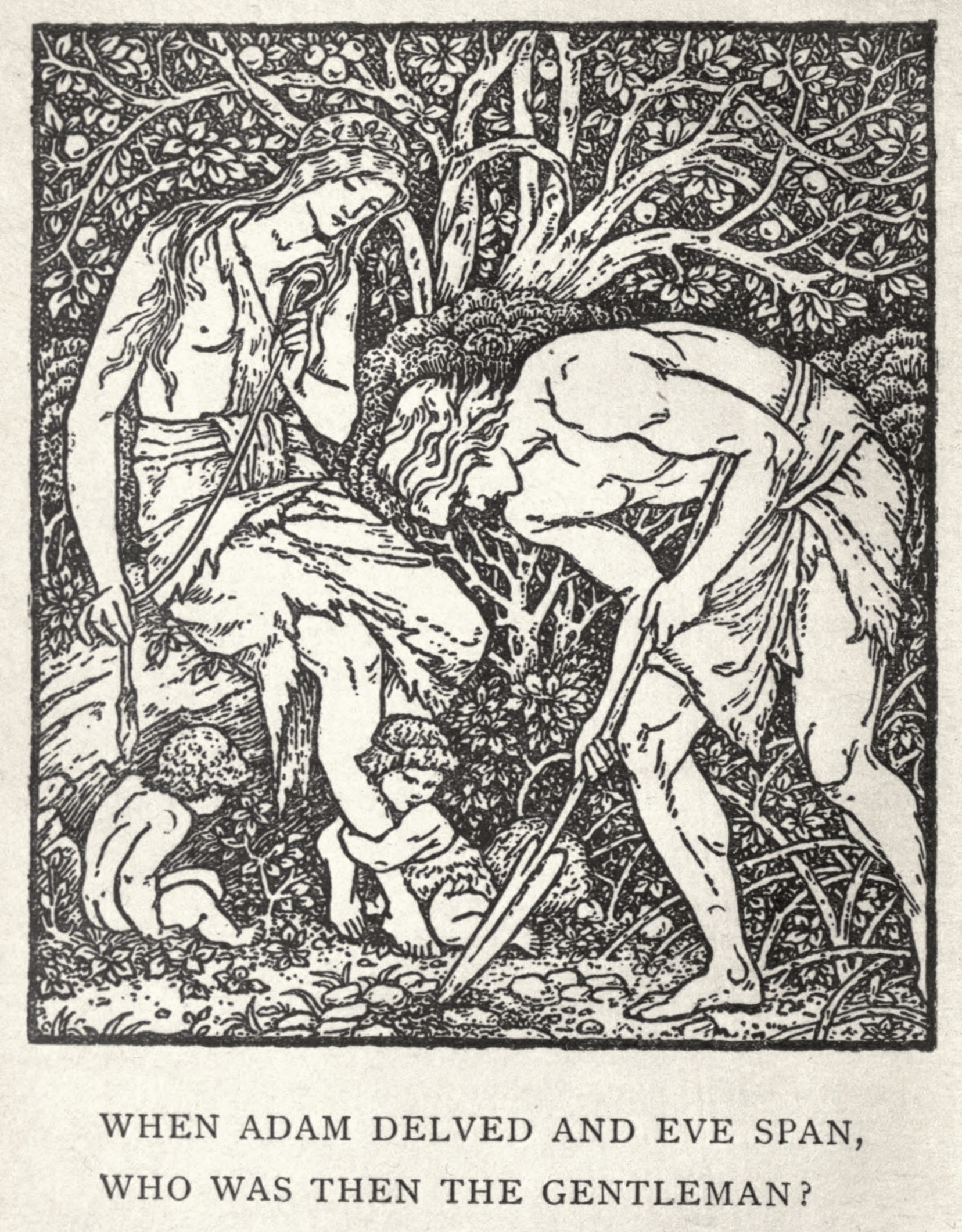
Se også:
Bondeoprør (Leksikon.org)
Se også på Socialistisk Bibliotek:
Tidslinjen 25. maj 1358, om den franske opstand La Jacquerie.
















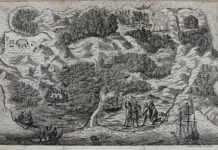
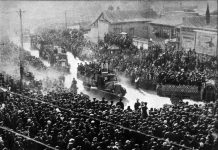

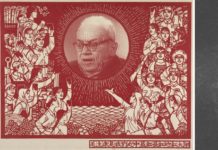
![Skipper Clements henrettelse. Udsnit af kortet: Danorum Marca uel Cimbricum, aut Daniae Regnum, multis sui partib. marinis interseptum ... qui Generosi ac Nobilis uiri Henrici Ranzovii, bonis artib. et Marte Illustris gubernatione, Regi Daniae foeliciter parent. M.D.LXXXV [1585] I kartouchen er afbilledet: Pallas, Mars og Skipper Clement. Kobberstik af Heinrich Jordan Rantzau, Marcus Braun, Frans Georg Hogenberg. Public Domain.](https://socbib.dk/wp-content/uploads/2007/12/232-4-02-218x150.jpg)
